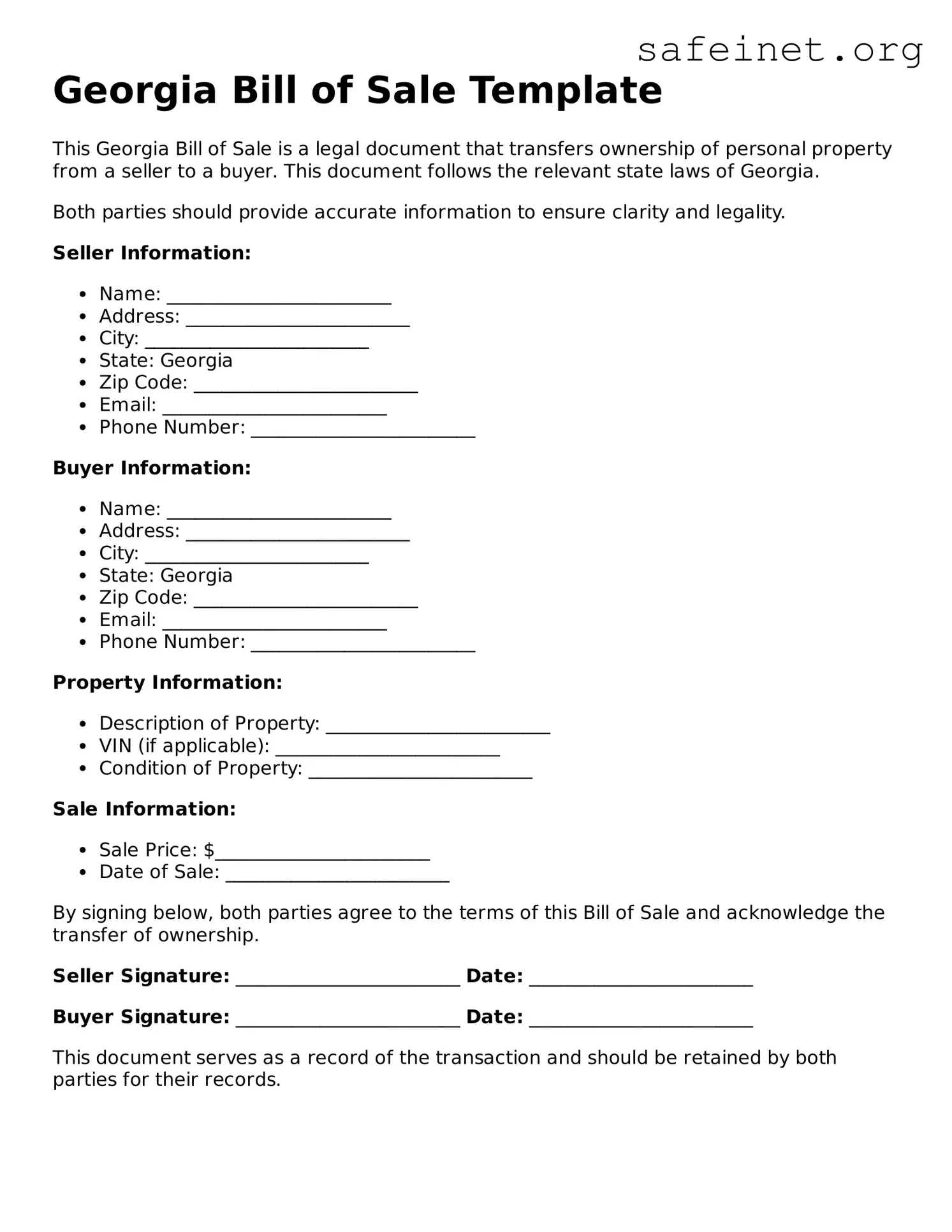Georgia Bill of Sale Template
This Georgia Bill of Sale is a legal document that transfers ownership of personal property from a seller to a buyer. This document follows the relevant state laws of Georgia.
Both parties should provide accurate information to ensure clarity and legality.
Seller Information:
- Name: ________________________
- Address: ________________________
- City: ________________________
- State: Georgia
- Zip Code: ________________________
- Email: ________________________
- Phone Number: ________________________
Buyer Information:
- Name: ________________________
- Address: ________________________
- City: ________________________
- State: Georgia
- Zip Code: ________________________
- Email: ________________________
- Phone Number: ________________________
Property Information:
- Description of Property: ________________________
- VIN (if applicable): ________________________
- Condition of Property: ________________________
Sale Information:
- Sale Price: $_______________________
- Date of Sale: ________________________
By signing below, both parties agree to the terms of this Bill of Sale and acknowledge the transfer of ownership.
Seller Signature: ________________________ Date: ________________________
Buyer Signature: ________________________ Date: ________________________
This document serves as a record of the transaction and should be retained by both parties for their records.
